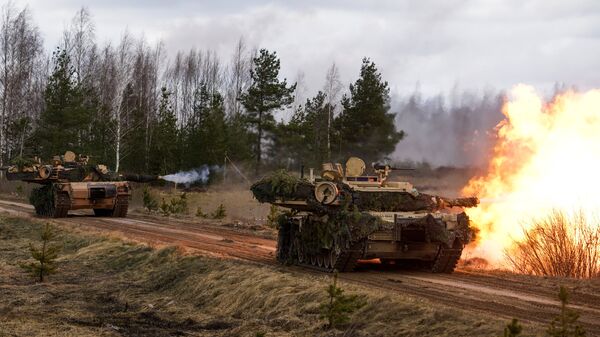"If it [INF] is not extended or replaced by a similar or even more ambitious agreement, and especially if new categories of intermediate-range missiles are deployed again, the threshold of a nuclear war in Europe would be dangerously lowered", Finaud said.
The expert noted that even though the treaty had been signed by the Soviet Union and the United States, "the countries where the missiles were deployed or which would be targeted by such missiles were all in Europe", meaning that the INF contributed not only to "strategic stability between the two main nuclear powers but also to the security of European populations".
The fact that this landmark treaty that eliminated a whole range of missiles was "now moribund" was "most regrettable", according to Finaud.
The expert noted that now, as the accord had been suspended, the only hope rested with bilateral contacts between the signatories.
"An encouraging sign was the recent meeting in Prague between Russian and American officials [Russian Deputy Foreign Minister Sergey Ryabkov and US Undersecretary of State for Arms Control Andrea Thompson] where this issue was discussed. The US accusations of Russian non-compliance should have been raised early within the joint commission established by the INF Treaty and not used as a pretext for the US withdrawal. Now the only solution to preserve the Treaty or negotiate a new agreement is through US-Russian bilateral negotiations", he said.
Without the INF Treaty in place, Finaud warns, "there is a serious risk" that missiles banned under the agreement could reappear.
"This would increase the risk of nuclear war since some of the INF-banned missiles were conventional ones, and if such non-nuclear missiles were exchanged in a conflict, they could be mistaken for nuclear-tipped missiles and lead to nuclear escalation. The risk would be even higher if the New START Treaty, expiring in 2021, is not extended or replaced: the arms control approach that was so successful so far would be replaced with a new arms race, leading to a dangerous destabilization", he stressed.
Speaking about Europe’s vision of the situation around the INF Treaty, the expert doubted that there was "any appetite among European NATO countries to host new US missiles and therefore become designated targets".
According to Finaud, European nations "have a direct interest in playing an active and constructive role to push for US-Russian negotiations on all aspects of arms control".
Earlier on Wednesday, Russian President Vladimir Putin signed a federal law that officially suspended Russia's participation in the 1987 INF Treaty.
The move came months after the United States suspended its obligations under the accord on 2 February, warning that it would launch a withdrawal process which would be completed in six months unless Moscow remedied alleged violations of the deal. Russia pledged to act proportionally.


